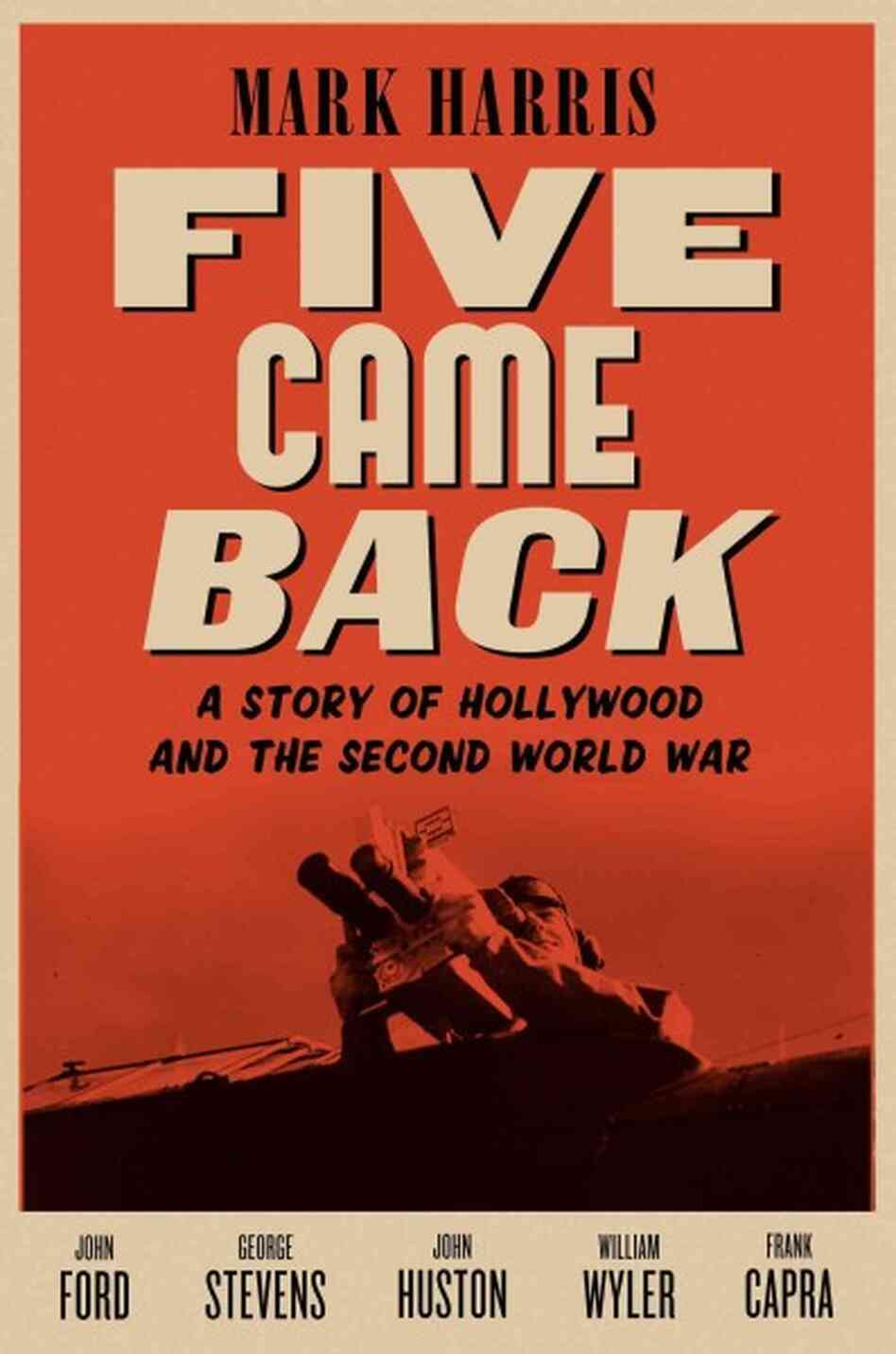I wrote this as part of my homework - a journal entry from listening to NPR.
 Terry Gross interviewed Mark Harris who wrote a book about five filmmakers who enlisted in the military for the purpose of filming during World War II. Frank Capra (It’s a Wonderful Life), John Ford (Grapes of Wrath), George Stevens (Giant), William Wyler (Ben Hur), and John Houston (The Maltese Falcon) all enlisted in the military with the express purpose of filming the war.
Terry Gross interviewed Mark Harris who wrote a book about five filmmakers who enlisted in the military for the purpose of filming during World War II. Frank Capra (It’s a Wonderful Life), John Ford (Grapes of Wrath), George Stevens (Giant), William Wyler (Ben Hur), and John Houston (The Maltese Falcon) all enlisted in the military with the express purpose of filming the war.
Hollywood and the American government (the War Department) called an uneasy truce in order to make this happen. Neither trusted each other, but the need to encourage the American public brought them together (this truce would end after the war was over). Some of the men were conservatives and some were more liberal – but they were all established, respected Hollywood directors.
These directors were given specific tasks it seems. It didn't always turn out to be exactly what they expected, but they all had an impact. It was expected that they would mostly film and make movies/documentaries that would be shown to the American public at the movie theaters before the feature film.
Capra made a series of training films called Why We Fight that was mostly for the soldiers, but of few of them made their way into the theaters. John Ford filmed the Battle of Midway. When he was sent there he didn’t know a major battle was going to take place, though the people in charge did. They placed him not in the thick of things but in “the doorway to the battle” where he could see everything and film it. He was also sent to Omaha Beach for D-Day, which he had time to prepare for and setup filming. A lot of it was lost due to cameras not working and such, but what did get filmed was largely too graphic and raw to be shown to the public. It was shown to the war department and a carefully edited version was released to the public.
George Stevens, who I did not know by name, wound up at the Dachau concentration camp when it was liberated. His plan of filming a documentary was abandoned when he saw what had gone on there. Instead he filmed it all as evidence, which it was used for during the Nuremberg trials – where the defendants were forced to sit and watch it. Wyler, who I also did not know by name, made a documentary about the Memphis Belle crew (which I think must be what the movie was based on). I didn't catch what exactly John Houston filmed.
At any rate, I was fascinated. I have seen some of those little clips they used to show at the theater, usually in a movie about that era, and somehow I never considered how they were made. I certainly never thought about real Hollywood directors stepping out of their established lives and putting themselves in harm’s way to do such a thing.
I have a difficult time imagining such a thing happening now.
Labels: Battle of Midway, filmmakers and World War II, Five Came Back, Mark Harris, Memphis Belle, Why We Fight
 Terry Gross interviewed Mark Harris who wrote a book about five filmmakers who enlisted in the military for the purpose of filming during World War II. Frank Capra (It’s a Wonderful Life), John Ford (Grapes of Wrath), George Stevens (Giant), William Wyler (Ben Hur), and John Houston (The Maltese Falcon) all enlisted in the military with the express purpose of filming the war.
Terry Gross interviewed Mark Harris who wrote a book about five filmmakers who enlisted in the military for the purpose of filming during World War II. Frank Capra (It’s a Wonderful Life), John Ford (Grapes of Wrath), George Stevens (Giant), William Wyler (Ben Hur), and John Houston (The Maltese Falcon) all enlisted in the military with the express purpose of filming the war.